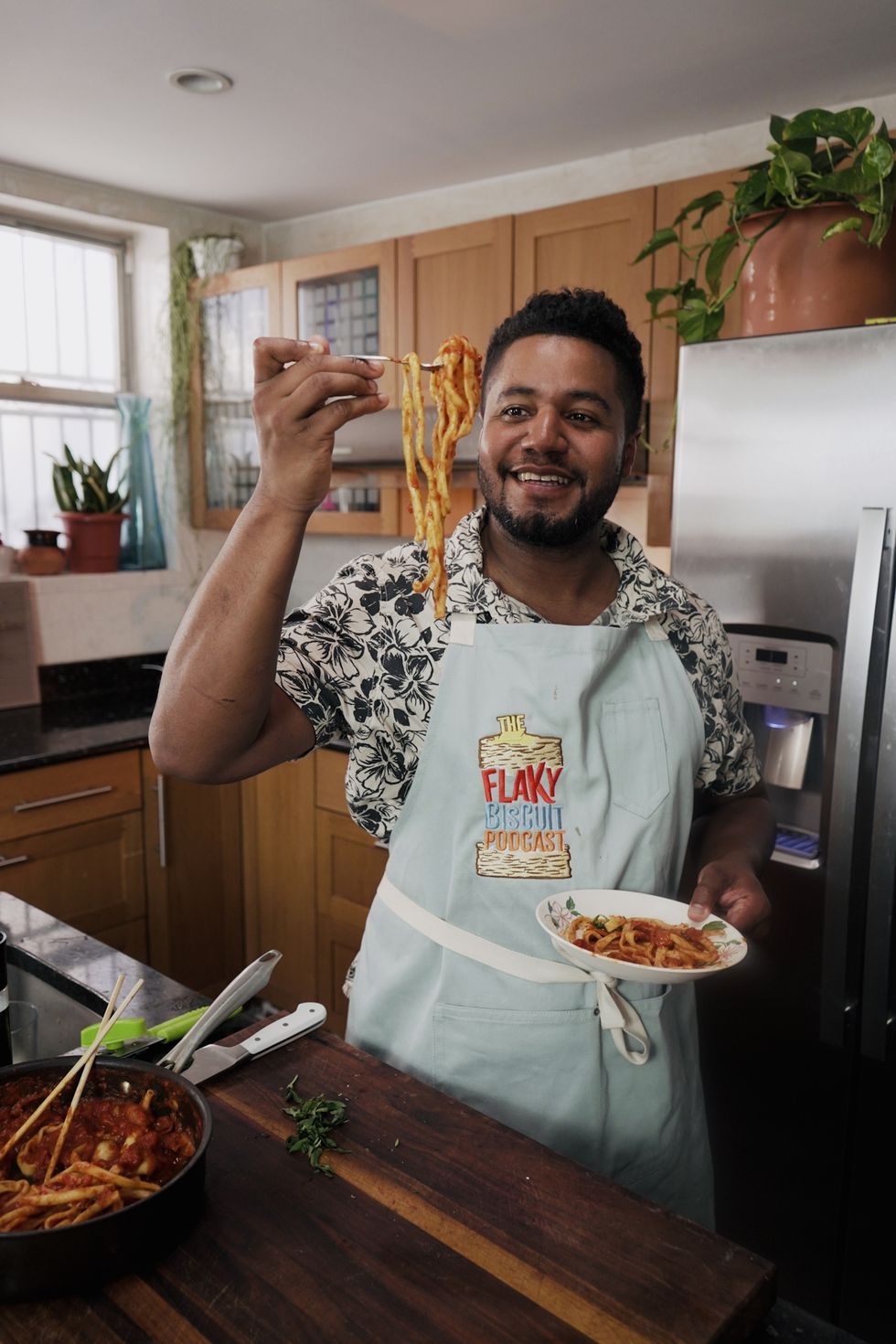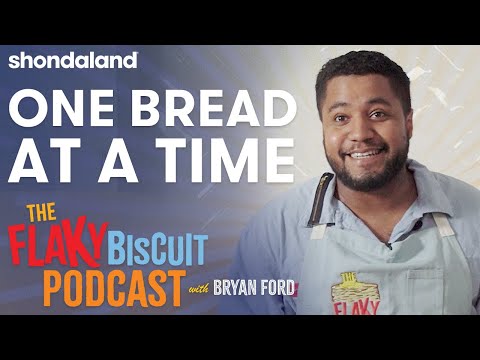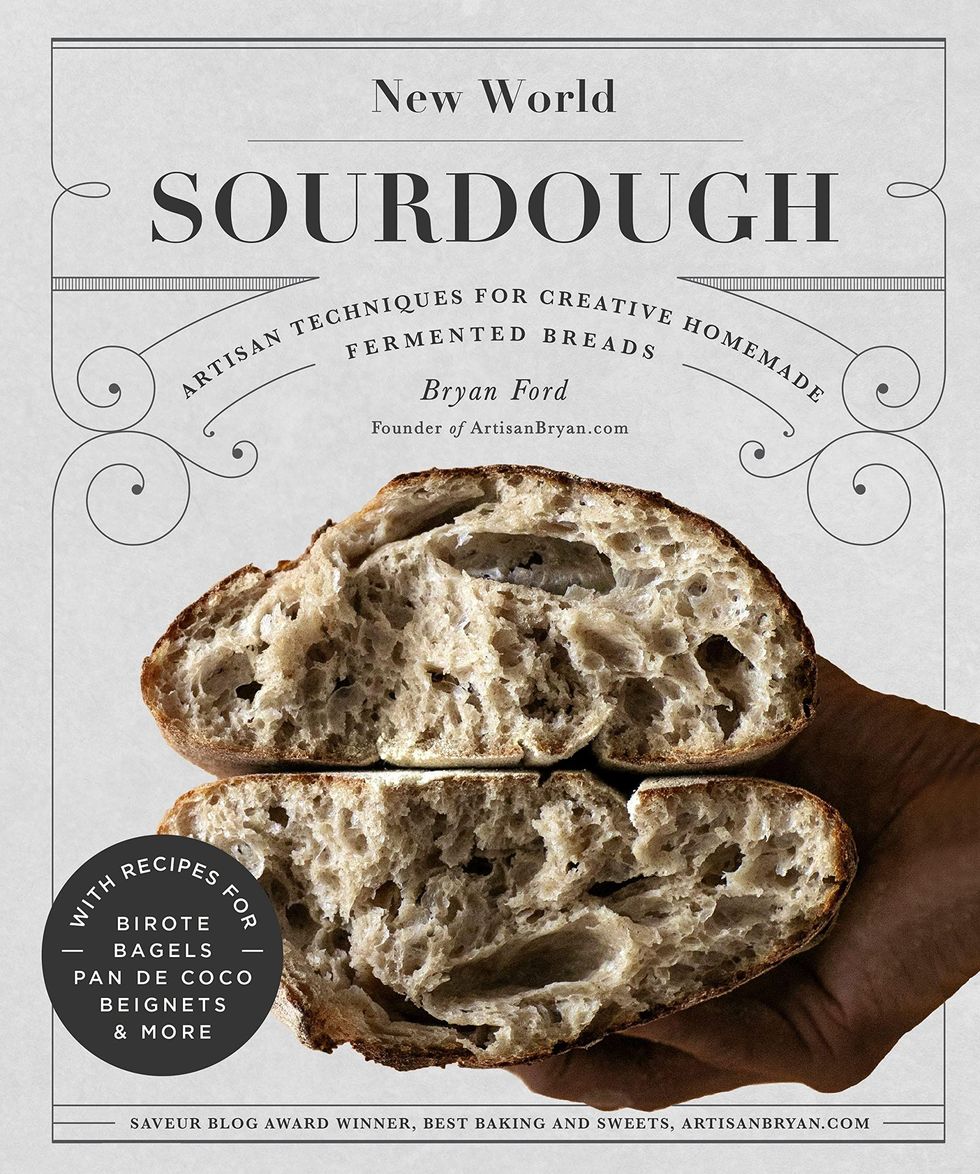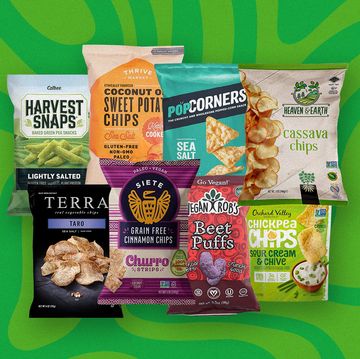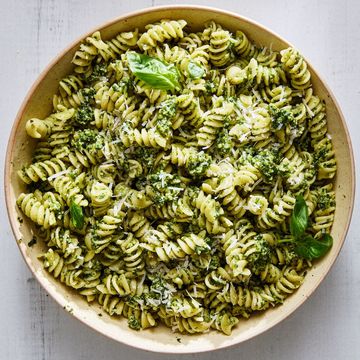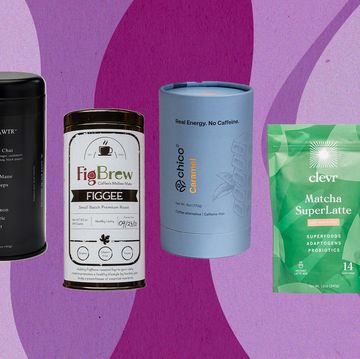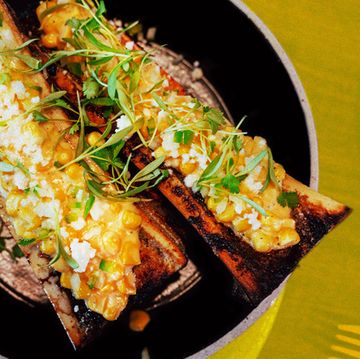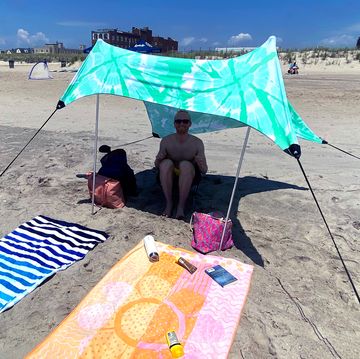The kitchen in Bryan Ford’s New York City home bears the trappings of a creative genius. In this laboratory, the Afro-Honduran baker, who traded an accounting calculator for a chef’s apron, formulates and tests recipes spanning the Western Hemisphere, ranging from Argentine medialunas to Peruvian picarones.
Ford’s space functions as a makeshift studio familiar to the hundreds of thousands of people who follow him on social media, accustomed to seeing him cut, caress, and cajole sourdough while riveted by his trademark upbeat charm. This is also where the meals he makes that don’t appear on camera are crafted. It is, after all, a home, and bakers need to eat.
A single music speaker by the door opening out to the backyard provides the soundtrack for Ford’s working day, belting out French pop, hip-hop, classical, funk, rock — you name it. “I listen to absolutely everything,” he says. “Your emotions do affect your recipes. If you’re sad, your bread will come out sad; if you’re happy, your bread will come out happy. Depending on the mood, I might put on something with more energy to get the day going and start mixing some dough. Or if I’m doing a little shaping at night, it might be more relaxing jazz.”
Among the welter of ingredients and implements in the nucleus of his baking universe, ideas and inspiration flow. The fresh sprig of rosemary and jar of sourdough starter — murky, sinister-like — appear destined for experimentation. Yet for all his exploration into flavorful possibilities, Ford’s quest inexorably returns to a childhood memory.
“A baleada, for me, is the ultimate,” Ford says. “There’s nothing that comes close to bringing me back to Earth, or grounding me to who I am.” The components making up the ubiquitous Honduran street snack are the embodiment of comfort. A freshly made tortilla is griddled until brown pockmarks speckle the circular flatbread. On that goes a slather of refried red beans redolent of onion and cumin; dollops of mantequilla, Honduran-style sour cream often referred to as crema; and crumbled hard white cheese, queso seco being the most traditional.
Together, the humble quartet is folded in half into a semicircle with simplicity built into its name: baleadas sencillas, or simple baleadas. But simple does not mean easy. Ford recounts his mother kneading tortilla dough using a cutting board inverted against the sink for leverage. He rattles off the ingredients in a rapid staccato by rote, like an internal rap song: flour, coconut milk, salt, oil, baking powder. The elements, though constant, come with inexact proportions.
“Eating that just brings me back to living in apartments, my parents struggling to make it,” Ford says. “It’s like optimism; it’s hopeful. Even if we’re poor and struggling, a baleada on the table means we’re going to smile, even for five minutes.”
Ford’s mother always relied on instinct and muscle memory to achieve dough with perfect elasticity. “She used to make them all the time when we were growing up,” he recalls. “I’ve tried to emulate that flavor, but every time I ask her for the recipe, I swear she changes a little detail.”
The unapologetic way that food can unlock memory forms the bedrock of Ford’s upcoming Shondaland Audio podcast The Flaky Biscuit, set to debut June 27. The podcast features Ford preparing dishes for his guests in the hopes of triggering the so-called Proust effect. This sensory déjà vu takes its cue from Marcel Proust’s 1913 work À la recherche du temps perdu (Remembrance of Things Past), in which a madeleine transports the protagonist to his younger self eating the same thing on Sunday mornings with his aunt, who dunked the little cakes into lime blossom tea.
The show’s name — devised when Ford gave his business and life partner, Bridget Kenna, 20 seconds to utter the first thing that popped into her mind — evokes mischief and intrigue. “Flaky Biscuit is fun,” he explains. “When I think of a warm biscuit, I think about a positive, comforting memory. Biscuits are comforting. They’re delicious. They’re simple. They remind me of nostalgia. The idea is to use nostalgia as a vehicle for conversation about something that’s bigger than food but starting off with that moment.”
As listeners delve into the lives of the guests and their paths to success, the theme of philanthropy frequently rises to the surface. Ford invited his guests to the show not simply because they love food. They are also giving back, be it by resettling new immigrants, volunteering at food banks, or providing musical education to children.
“Nostalgia for me can also be invited by these acts of community strengthening,” Ford explains. “I’m not big into making people donate money to stuff. That’s not the point. What is the point of us sitting there having an amazing time over food talking about these memories if we’re not also going to talk about how we can help other people have those memories?”
A co-production of Ford and Kenna's company, Flaky Biscuit Media, the podcast was conceived as a food show with more substance. Kenna designed the format, which includes a call to action, so there is purpose amidst all the pleasures of food.
The Flaky Biscuit is also an homage to Ford's parents. His father would spend weekends traveling to churches and food banks outside of town to ensure Ford and his three siblings never went hungry. His father would spend weekends traveling to churches and food banks outside of town to ensure Ford and his three siblings never went hungry. His mother arrived in the United States from Honduras without knowing English, eventually graduating from college at age 45 and getting certified as an accountant. Through the rigors of work and school and life, there was always that baleada connecting the family for nourishment and nostalgia.
The fortitude of Ford’s mother is his deepest source of inspiration. He started out in her footsteps, turning to accounting after university. He hated it. The dedication was there; the passion was not. After he left the field, he was consumed by baking. “The first thought that came into my mind was that I wanted to open a bakery,” Ford says. “I’d saved up some money and went to Europe because I’d never been. I traveled, moved to Miami, started making bread, started coaching soccer, [and] getting back to the things I like, living the life I want.”
This was back in 2015 before sourdough took the nation by storm during the pandemic, when people stuck at home started to breed cultures in their fridge so they could return to the primality of making food from scratch. In the intervening years, Ford attempted to crack the sourdough code. “I was curious,” he says. “It was something I didn’t know how to do that well. It’s a puzzle to be had: How can I make this bread rise naturally? What can I do to make the flavor nice?”
First, Ford posted pictures, then videos online. His followers clamored for his recipes. Ford’s blog was born. When the pandemic hit, he rose to stardom at the speed of levain in a scalding oven. His easy philosophies on baking resonated with the public: Everyone can bake, it’s not that hard, don’t overthink it, take pride in this which thou created with thine own two hands. Offers for TV shows and the book New World Sourdough followed, as did the awards and national recognition.
Ford’s charisma is indisputable, but underpinning his initial success was an unspoken truth. Here was a Black Latino man born in the Bronx to Honduran immigrants and raised in New Orleans making waves in a white, Eurocentric industry. “I thought at this point there would be more Black and brown authorities popping up in the baking world,” he notes. “But it’s still pretty lacking in terms of whom you would consider an authority, who’s publishing books, who’s at the forefront of grain economies or bakery openings.”
Despite being busy launching the podcast, writing his second book, and continuing to engage fans on social media, Ford is also working on his dream of opening a Latin American-forward bakery. He wants to lean into the vibrant array of pan dulce, sweet breads such as conchas and semitas, as well as Argentine favorites like medialunas, a croissant-adjacent pastry, and fugazza, an onion-topped pizza-focaccia hybrid.
“I’m trying to create a bakery that sees the whole continent as a present-day authority in high-end artisan baking,” Ford says. “It all just stems from the fact that I’m very proud of being a Black Hispanic. Whatever I choose to do, I want to make it more Hispanic.”
With his DNA forged by African roots and Honduran blood, a rich New Orleans upbringing, and an unwavering New York spirit, it remains all about family for Ford. “The pinnacle of what I wanted to achieve was to get my mom and dad some peace,” he says. “Unfortunately, my father passed away. But with my mom, I hope I can. I got one more chance at that. This is why I work.”
Listen and subscribe to new episodes of The Flaky Biscuit at iHeart, Apple, or wherever you get your favorite podcasts.
Gerald Tan is a Washington, D.C.-based food writer, TV host, and author of Tok Tok Mee: A Portrait of Penang Street Food. Follow him on Instagram @boulangerry.
Get Shondaland directly in your inbox: SUBSCRIBE TODAY

